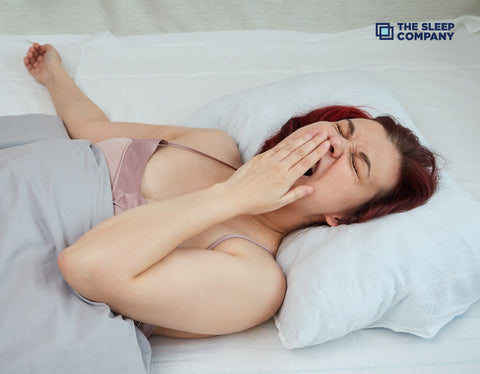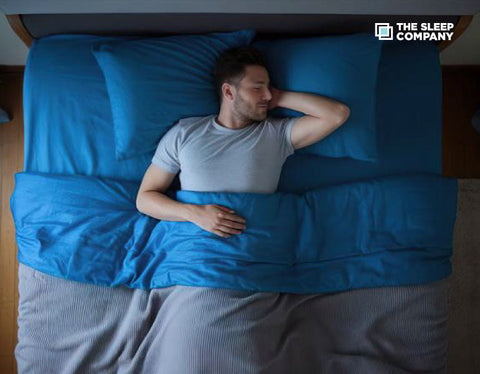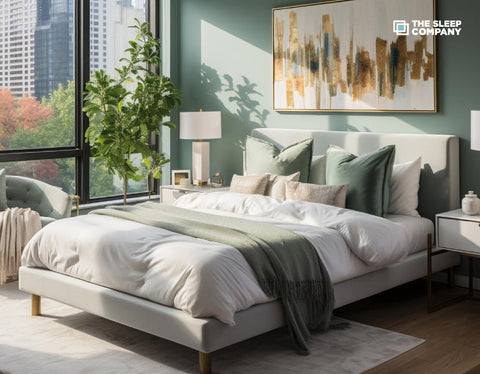My Cart
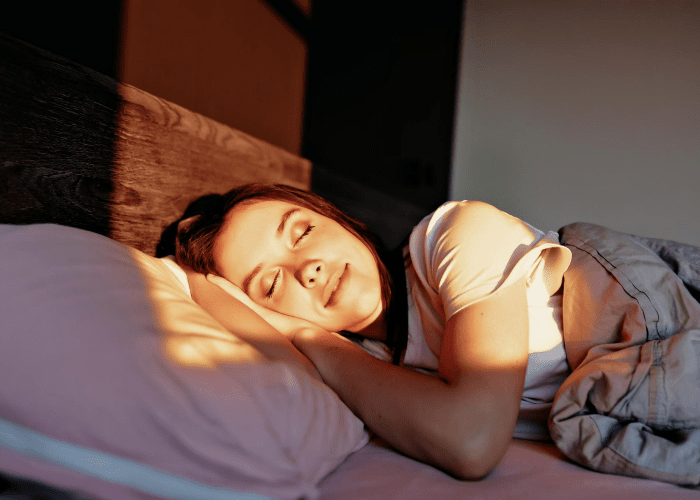
How Light Impacts your Sleep Environment?
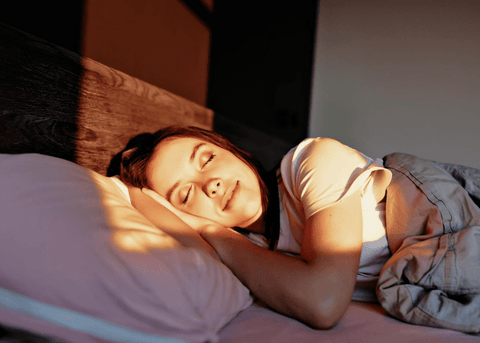
Light and dark are powerful cues that inform your body when it’s time to wake up or sleep. Light is a popular sleep thief because it inhibits melatonin (the hormone that helps regulate the body’s circadian cycle and aids in sleep). In this day and age, we are exposed to more artificial light than ever before, which disturbs our circadian cycles, keeping us awake and less asleep.
Studies have shown that the sleeping environment has a significant impact on sleeping patterns, so it’s no surprise that the light in the bedroom has an effect on the quality of sleep, which may lead to a variety of health problems.
Is light a modern sleep problem?

Artificial light has been ingrained in our daily lives. However, it is vital to note that persistent exposure to bright lights might damage our capacity to sleep without our knowledge. With the increasing use of smartphones and tablets, this has become an even bigger problem in recent years. When you scroll through your phone till your head hits the pillow, you’re not only assaulting your brain with information at a time when it should be shutting down, but you’re also exposing yourself to harsh lights, which can impede your body’s release of melatonin, making sleep more difficult.
Controlling your light intake
Assessing your connection to light, particularly in the days leading up to the night, is critical to building a good sleeping environment. You may build a bedroom that promotes great sleep by blocking out undesirable light with awareness and attention to detail.
Window treatments, whether blackout blinds or properly lined curtains, should be able to filter out light. Check that your window covers are properly fitted so that no sliver of morning light or street lamp illumination enters.
But it’s not just about the windows. Electronics in the bedroom can really disrupt a good night’s sleep. Avoid allowing televisions, iPads, or laptops in your bedroom. You should also refrain from using your phone for at least one hour before going to bed. Instead of placing it directly next to your bed, consider leaving it on the opposite side of the room, or perhaps in another room entirely, to avoid temptation. A good night’s sleep requires a comfortable and supportive mattress. Explore the wide range of mattresses before you buy mattress online.
How dark should a Bedroom be?

You should ideally not be able to see the opposite side of the bedroom. Light may be recognized through your eyelids even when you’re sleeping, thus we require darkness to sleep soundly.
A few changes to your morning and bedtime rituals can significantly help your body’s internal body clock. Here are some ideas for making your bedroom dark to help you sleep better:
- Invest in a pair of high-quality, well-lined drapes and a blackout blind to block out early morning light and street lights and keep the room dark.
- Keep an eye mask on hand to further block out light – especially beneficial if you work a shift and need to sleep during the day.
- If you want to read in bed, get a lamp with low-wattage bulbs or a dimmer light.
- Even modest quantities of light from an alarm clock or TV standby button might disrupt your sleep, so remove, rotate, or cover them.
- Close bedroom doors to prevent light from entering from the landing, bathroom, or adjacent bedrooms.
- Nightlights are useful if you are terrified of the dark or require a tiny amount of brightness to assist you manage excursions to the bathroom or a child’s bedroom. However, red lamps are preferable to white bulbs since they do not interfere with melatonin release – and never turn on the overhead light!
- You may now buy alarm clocks with convenient light settings that fade gently to help you sleep and then gradually brighten to get you up in the morning.
- Avoid screens for roughly an hour before night. Because blue light decreases melatonin release at night, switch off laptops, mobile phones, and even the television. In the evening, turn off overhead lights and switch to softer lighting to assist raise melatonin levels and ease your body into nighttime mode.

There’s no reason to be terrified of the dark, especially before going to bed. Many youngsters, and even some adults, associate darkness with danger. We’ve all heard legends of monsters hiding under beds and in closets, only to emerge when the sun has set and the moon is full. Many individuals find the concept of sleeping in complete darkness unsettling. But there’s nothing to be afraid of in the dark, especially at night. Darkness is one of your most trustworthy companions when it comes to falling asleep.
Sleeping requires darkness. Light deprivation delivers crucial signals to the body informing it that it is time to rest, and light exposure at the incorrect time can disrupt your internal sleep-wake cycle, interfering with the quality and quantity of your sleep.
Early dawn light exposure
It is essential to expose oneself to light in the morning in order to feel alert. Open the curtains as soon as you wake up and get out into natural light as soon as possible, ideally around the same time every day.
Natural light, which may be helpful even on a gloomy or grey day, aids in the rest of our internal body clock. It helps us get over feeling sleepy after waking up and makes us more awake.












































